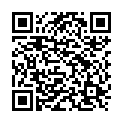|
|
|
| Module code: PIM-EEIS |
|
|
2V+2U (4 hours per week) |
|
6 |
| Semester: 2 |
| Mandatory course: no |
Language of instruction:
German |
Assessment:
[updated 28.02.2024]
|
KIM-EEIS (P221-0205) Computer Science and Communication Systems, Master, ASPO 01.10.2017
, semester 2, optional course, telecommunications-specific
PIM-EEIS (P221-0205) Applied Informatics, Master, ASPO 01.10.2017
, semester 2, optional course, informatics specific
PIM-EEIS (P221-0205) Applied Informatics, Master, SO 01.10.2026
, semester 2, optional course, informatics specific
Suitable for exchange students (learning agreement)
|
60 class hours (= 45 clock hours) over a 15-week period.
The total student study time is 180 hours (equivalent to 6 ECTS credits).
There are therefore 135 hours available for class preparation and follow-up work and exam preparation.
|
Recommended prerequisites (modules):
None.
|
Recommended as prerequisite for:
|
Module coordinator:
Prof. Dr. Maximilian Altmeyer |
Lecturer:
Prof. Dr. Maximilian Altmeyer
[updated 07.04.2024]
|
Learning outcomes:
After successfully completing this module, students will be able to empirically evaluate interactive systems, formulate research questions and hypotheses on the basis of existing scientific theories and investigate these using suitable quantitative and qualitative methods. To this end, they will be able to design and implement suitable research prototypes and study apparatus. They will be able to describe and apply basic concepts of frequentist statistics. In addition, they will be able to confidently apply suitable statistical methods to investigate specific questions, check prerequisites and take measures to prevent errors of the first and second kind. They will develop an understanding of the p-value and be able to interpret it in a reflective manner. This includes the ability to recognize the role of the p-value in statistical hypothesis tests, to understand the meaning of significance levels and to derive appropriate conclusions from the results of statistical tests. In addition, students will be able to explain and apply qualitative methods. They will be able to distinguish between qualitative and quantitative research methods, describe their respective characteristics and weigh up their applicability in different scientific contexts. In addition, they will be able to critically reflect on when a combination of both methods makes sense and how they can be used synergistically in order to achieve a comprehensive understanding of the research subject.
[updated 28.02.2024]
|
Module content:
- Introduction - Evaluation of interactive systems using the example of games
- Research questions, hypotheses
- Descriptive statistics, dealing with data
- Study equipment, research prototypes
- Ethics, informed consent
- Study design, A/B tests, Within and Between Subjects studies, counterbalancing
- Dependent & independent variables, operationalization
- Quantitative methods: t-tests, ANOVA, correlations (and non-parametric counterparts), model building - and validation
- The P-value
- Effect measures, confidence intervals, standard deviation, outliers
- Error control
- Power analyses
- Qualitative methods: Observations, interviews, focus groups
- Qualitative methods: Coding, inter-rater reliability, theme development
In addition to the lecture part, there will be an exercise in which students develop research prototypes (e.g. adapting open-source games to a research question) and can test and apply the methods they have learned immediately.
[updated 28.02.2024]
|
Teaching methods/Media:
Interactive systems, peer review
[updated 28.02.2024]
|
Recommended or required reading:
[updated 28.02.2024]
|
Module offered in:
SS 2025,
SS 2024
|


